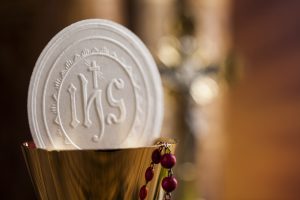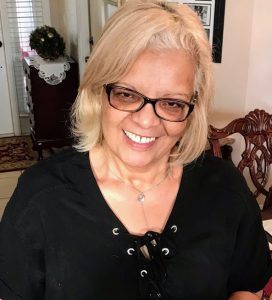 O.C.I.A. or Order of Christian Initiation for Adults is a process for people who would like to know more about the Roman Catholic faith. Those who would like to receive the Sacraments of Initiation, that is, Baptism, Confirmation and Communion. It is also for those who desire to be received in full communion to the Catholic Church or who would like to convert to the Catholic Church.
O.C.I.A. or Order of Christian Initiation for Adults is a process for people who would like to know more about the Roman Catholic faith. Those who would like to receive the Sacraments of Initiation, that is, Baptism, Confirmation and Communion. It is also for those who desire to be received in full communion to the Catholic Church or who would like to convert to the Catholic Church.
The OCIA process has several distinct stages. These Catholic OCIA stages are a good model of faith development itself.
Inquiry: the initial period before you decide to enter the Catholic Church. You’re asking questions and checking it out but aren’t yet ready to commit.
Catechumenate: those who decide to enter the Church and are being trained for a life in Christ are called catechumens, an ancient name from the early Church. In this stage, you’re developing your faith and are being “catechized”—learning catechism, or the basic points about Catholic faith and life.
Purification and preparation: The Church will help you focus and intensify your faith as you prepare you to commit your life to Christ and be received into the Church at Easter. If you’re following the RCIA process, you’ll go through a beautiful series of Gospel-based meditations during Lent, which is the time frame of this period.
Initiation itself, the culmination of the whole process! You’re received into the Church during the Easter Vigil Mass, where you’ll receive the sacraments of initiation: baptism, confirmation, and Eucharist. (If you’ve already been baptized, you won’t be baptized again. You will be considered a candidate in completion of the sacraments of initiation)
Mystagogy: after reception into the Church at Easter, this period lets you reflect and learn more about the mysteries of the Mass and the Sacraments that you now participate in fully.
Are you interested in learning more about Catholicism? Do you have friends or acquaintances who are questioning what Catholicism is all about? Do you have Catholic family members or friends who have fallen away from the Faith? Invite them to investigate the truth about Catholicism by joining the RCIA group here at St. Juliana. Our group meets once a week for the length of the school year, beginning in late august. Practicing Catholics are encouraged to join as well – you are guaranteed to learn things about the Church you never knew! The program is open for adults 18 and over.
Contact the Office of Faith Formation at 561-833-1278 for more information.




